This post is inspired by my friend Ankita Sharma who hails from Faizabad in Uttar Pradesh.She is now married and stays in Kanpur,Uttar Pradesh and is a very lovely friend to have!She is a Coffee lover and loves to have it in Winters when the Sun is at its bare minimum and its freezing cold for the whole of Northern India.This post is dedicated to her friendship as she is one of the most lovely friends I have!Thank you Ankita for inspiring me to post this!”Sardiyon me Coffee ka maza kuch aur hi hai”!(In Winters having Coffee gives you a different and wonderful feeling)!After Tea,its the wonderfully aromatic Coffee which is preferred by most people in India and in some countries its the preference of the majority.
South India enjoys its Coffee like there is no tomorrow and essentially because there are vast expanses of Coffee Plantations in Karnataka and Kerala especially in Chikmanglur in Karnataka.It was first bought to South India by Baba Budan – a Sufi Saint from Yemen who bought exactly 7 beans to India in the 1700’s and planted them in the South as no one would buy them from him.They sprouted well in the fertile soils and yielded an aromatic plant which produced more beans which were further processed into a wonderfully refreshing and rejuvenating beverage which came to be known as “Kaapi” – derived from its English term – Coffee!The tradition has been going on for nearly three centuries and has expanded to a Global level to say nothing of the growing preference within the country’s boundaries as more and more people are coming to know about “Filter Coffee” or “Filter Kaapi” as it is called lovingly by the South Indians who are very possessive of their Culture,Cuisine and their Coffee – the three C’s!
Its important to know about “Filter Kaapi” and why is it called so.The “Kaapi” is regional as it means Coffee but the “Filter” is English in meaning and terminology.We travel to beyond 1890 when the soluble Instant Coffee was invented thereafter becoming famous in both the World Wars.That time India was a precious British Colony famous for Tea,Calico Silks,Indigo dyes,Saffron,various Spices and Coffee.In the Southern Regions the products for trade included Spices like Cinnamon,Cardamom,Pepper,Cloves and Nutmeg(including the cover surrounding the nut called Mace which was used as a separate spice) and Coffee.In those days Coffee was strong and not mixed with other ingredients like Chicory as its done now.The beans yielded a very bitter liquid with a lot of residue and to separate the liquid they needed a filter which was eventually invented.In those days the filters were made of Brass and then Aluminium but now they come in Stainless Steel and given as gifts to every South Indian bride during her marriage.
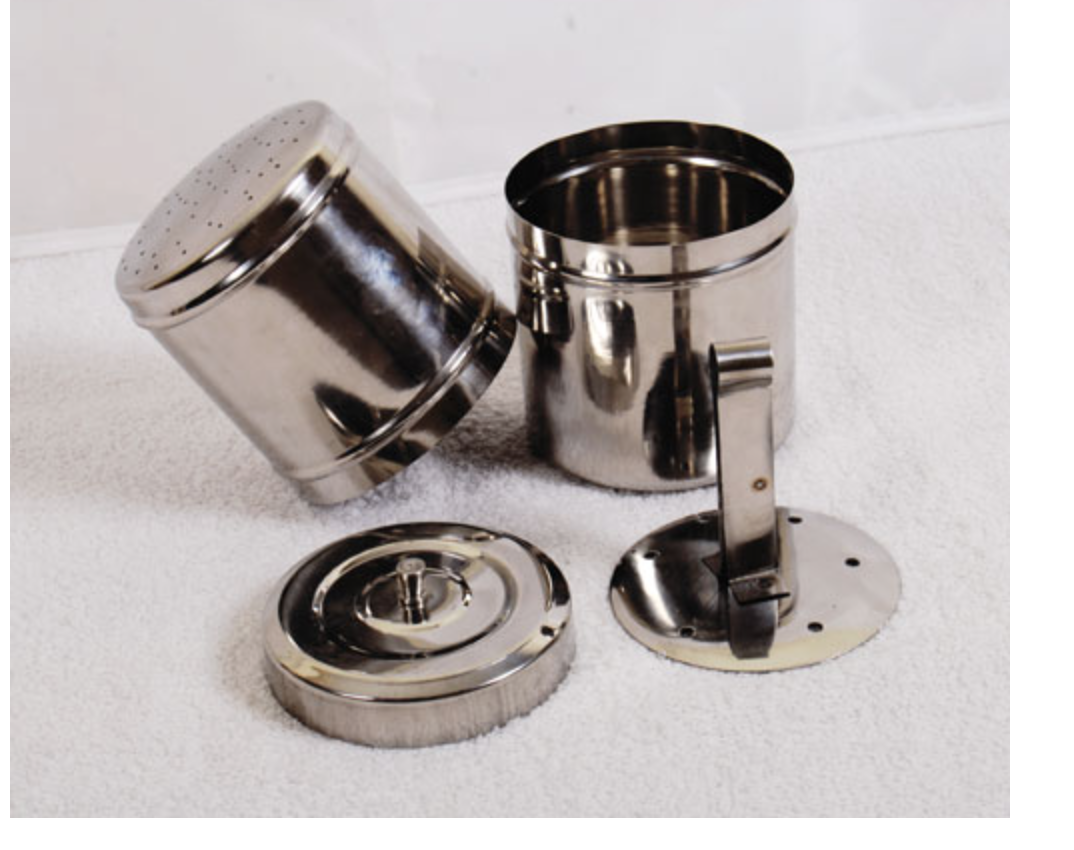 A traditional South Indian Filter for Coffee – showing all the components separately!
A traditional South Indian Filter for Coffee – showing all the components separately!
Image Source – www.hotdishes.net
“South Indian filter coffee is brewed with a metal device that resembles two cylindrical cups, one of which has a pierced bottom that nests into the top of the “tumbler” cup, leaving ample room underneath to receive the brewed coffee. The upper cup has two removable parts: a pierced pressing disc with a central stem handle and a covering lid.
The upper cup is loaded with freshly ground coffee. The grounds are then compressed (i.e., tamped) with the stemmed disc into a uniform layer across the cup’s pierced bottom. The coarser the coffee grinds, the more one has to tamp the coffee to retain the same extraction. With the press disc left in place, the upper cup is nested into the top of the tumbler and boiling water is poured inside. The lid is placed on top, and the device is left to slowly drip the brewed coffee into the bottom. The chicory holds on to the hot water a little longer, letting the water dissolve and extract more of the coffee grinds.
The resulting brew is generally much stronger than Western drip/filter coffee, and often stronger than even espresso.”
Explained very intricately by Google
As we know,the Coffee beans are roasted to create the favourite colour,taste and aroma.However the modern day Coffee powder uses Chicory,a plant from the Dandelion family whose roots are roasted and ground resembling Coffee powder to a great degree.This powder is then combined with pure Coffee in the ratio of 20-30% of the total weight.They are medium roasted and finely ground.
The lovely Coffee Powder from Quality Coffee,Matunga,Mumbai!
My family uses Coffee bought from a very popular store – Quality Coffee in Matunga, Mumbai which is famous for selling only Coffee for nearly a century!Here is a newspaper report for the outlet:
However we being a “Modern Family” for certain reasons decided to embark on the modern method of making Coffee and invested in an Indian Filter Coffee Maker.As a child of the 80’s I saw how the grandmothers of the family prepared Coffee by painstakingly filtering it in the process mentioned above but by the time I started my family,things were changed drastically,the highly technical age had commenced and I was told that a Coffee Maker does things “at the push of a button,faster and more efficiently”.So no filtering the Coffee at night to have it in the morning.It was a “do now have now” age and the machine was totally customised for Indian use.I will show the process via pics that follow:
My Coffee Maker
The Coffee collector Jug,Filter and Holder
The vent through which water is poured
Pouring the water
Adding aromatic Coffee Powder to the filter cup
Assembling the machine back and switching on the power
The filtered Coffee starting to pour
Collecting the Coffee
These are the steps used for the Modern method of making Coffee.My Coffee Maker is relatively small with a 4 cup Filtered Coffee capacity(as shown in the pic).Now I will give you the measurements which have been passed on through 4 generations in my family of making lovely Coffee.
We percolated the Coffee and as per measurements made the concoction to 2 cups.
As per my “Modern Coffee Mug” it is 1/4 of it.
Pour it in a heating saucepan and add 3 measures of Milk.This makes 2 mugs of 3/4 level Coffee as a “normal serving” these days!I prefer to use non-fat milk as it is less calorific,does not form the “coffee cream layer” on top after some cooling and forms beautiful froth.Add required sugar per cup.
Now put the saucepan on medium heat and let the Coffee come to a gentle boil.
Take off heat.Pour equal amounts into waiting mugs or cups.Now pour back and forth from the cups to the saucepan and back again till the Coffee has a lovely froth which comes to the rim.
Serve with any kind of snacks or breakfasts or brunch.
Served with leftover Christmas Gingerbread and Almond Cookies!
In South India,the brunch is called “Tiffin”.These are lovely shots of piping hot Filter Coffee prepared and served with many filling delicacies.One of them is Venn Pongal – a lovely mix of rice and Mung Dal cooked together and spiced with a tempering of Ghee and spices!
Coffee Served in traditional stainless steel “Davara and Klass”(glass)
Pouring the Coffee into the Davara to cool it.
Equal Balance of Coffee…
The lovely and tasty “Tiffin”!
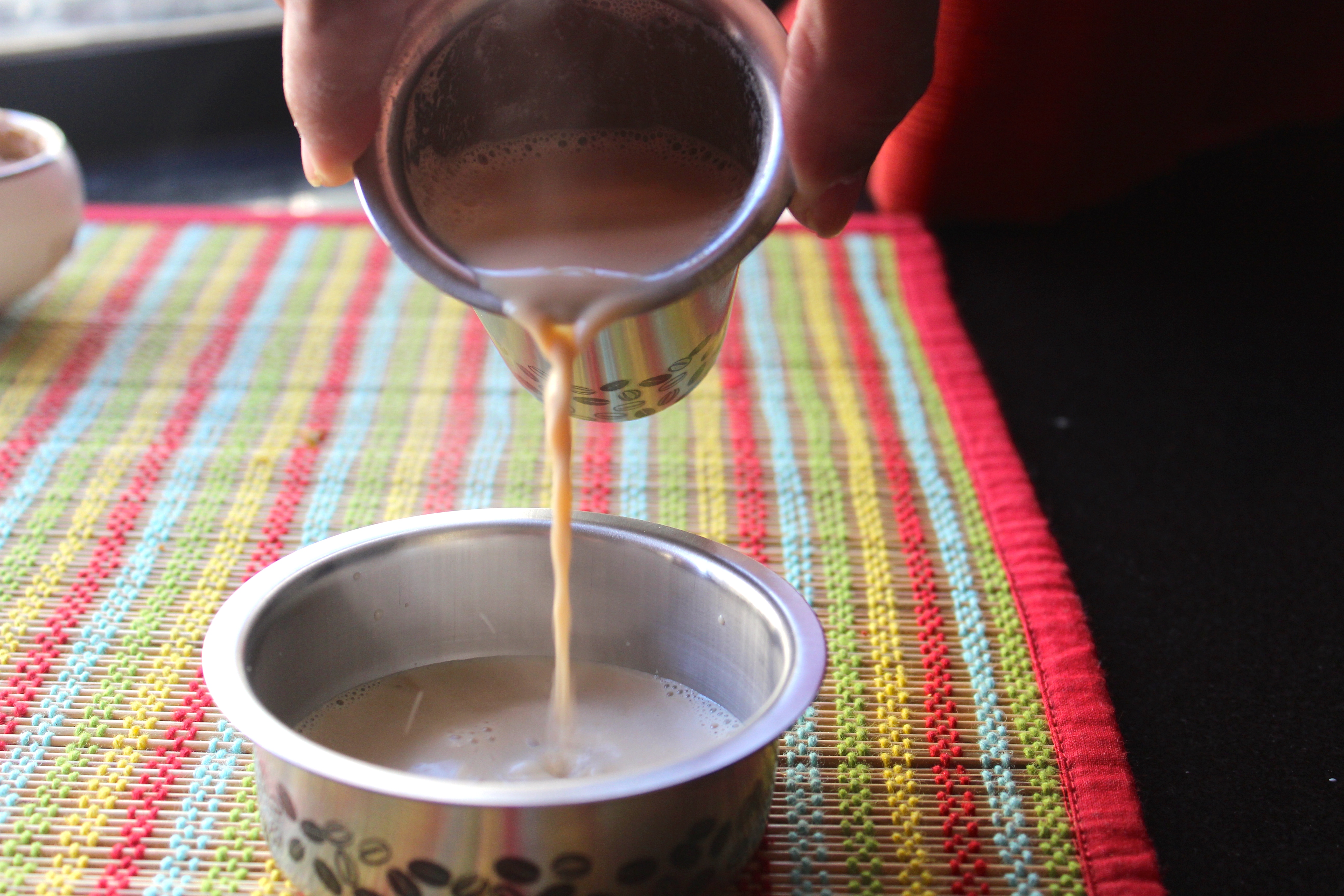

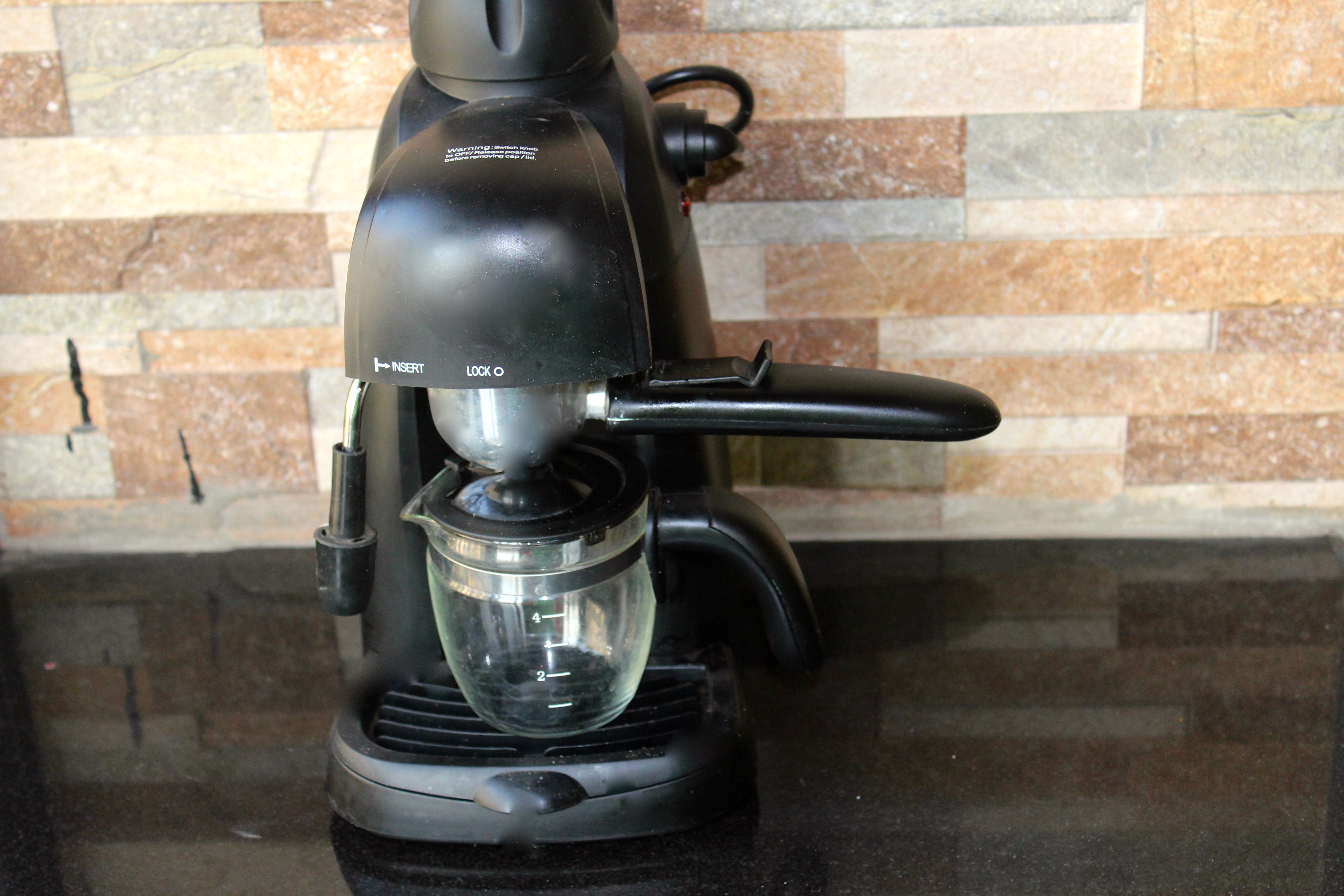
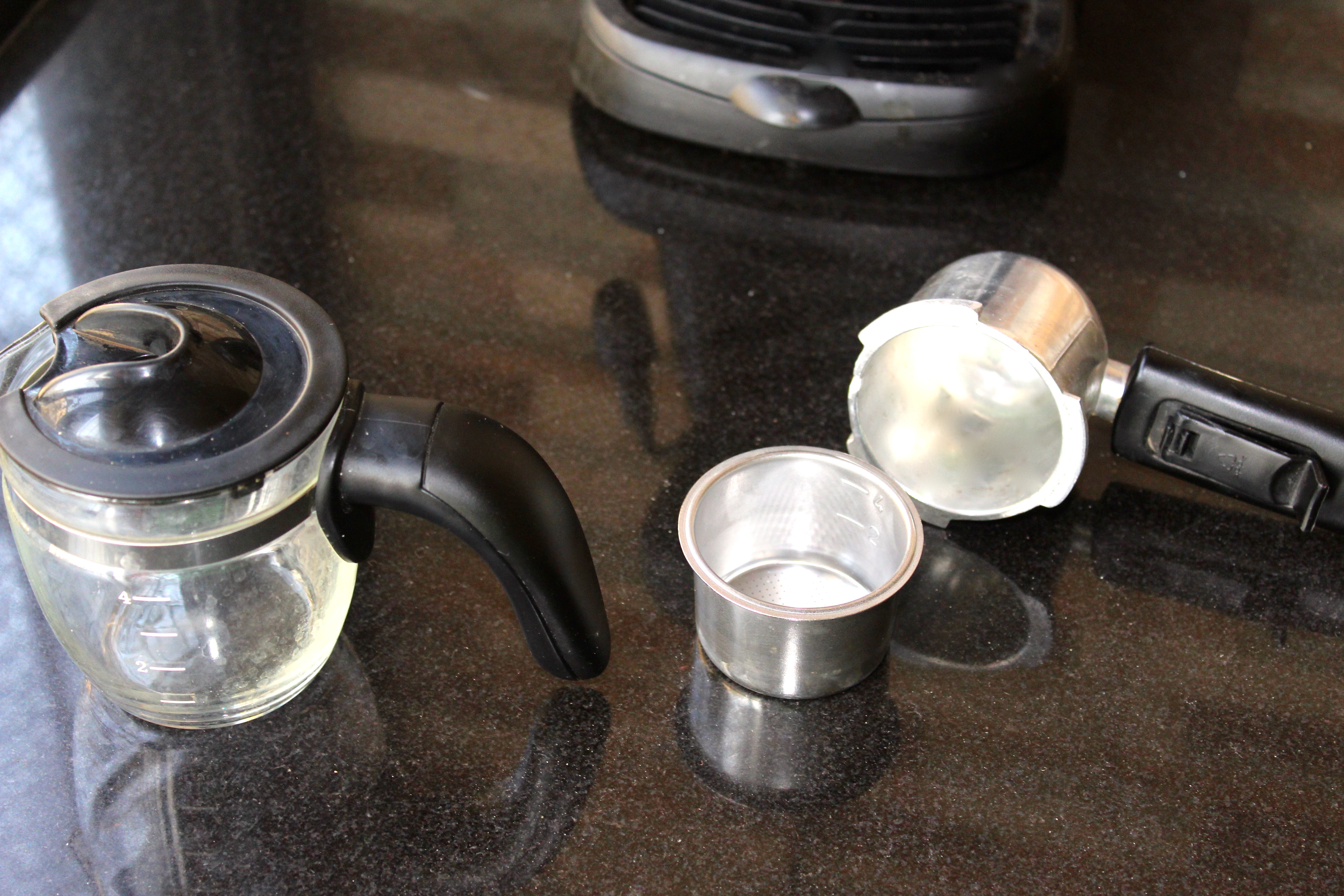
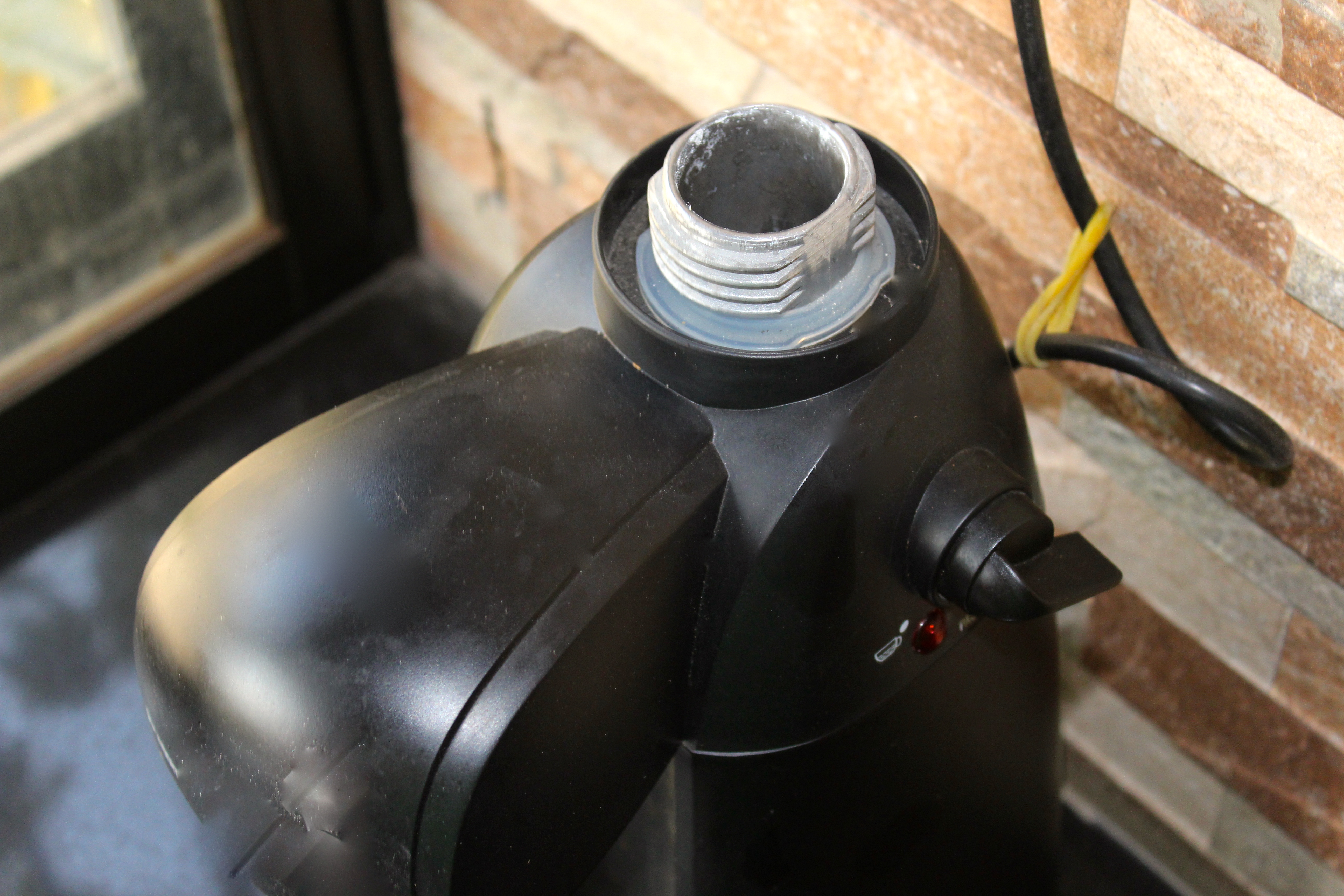


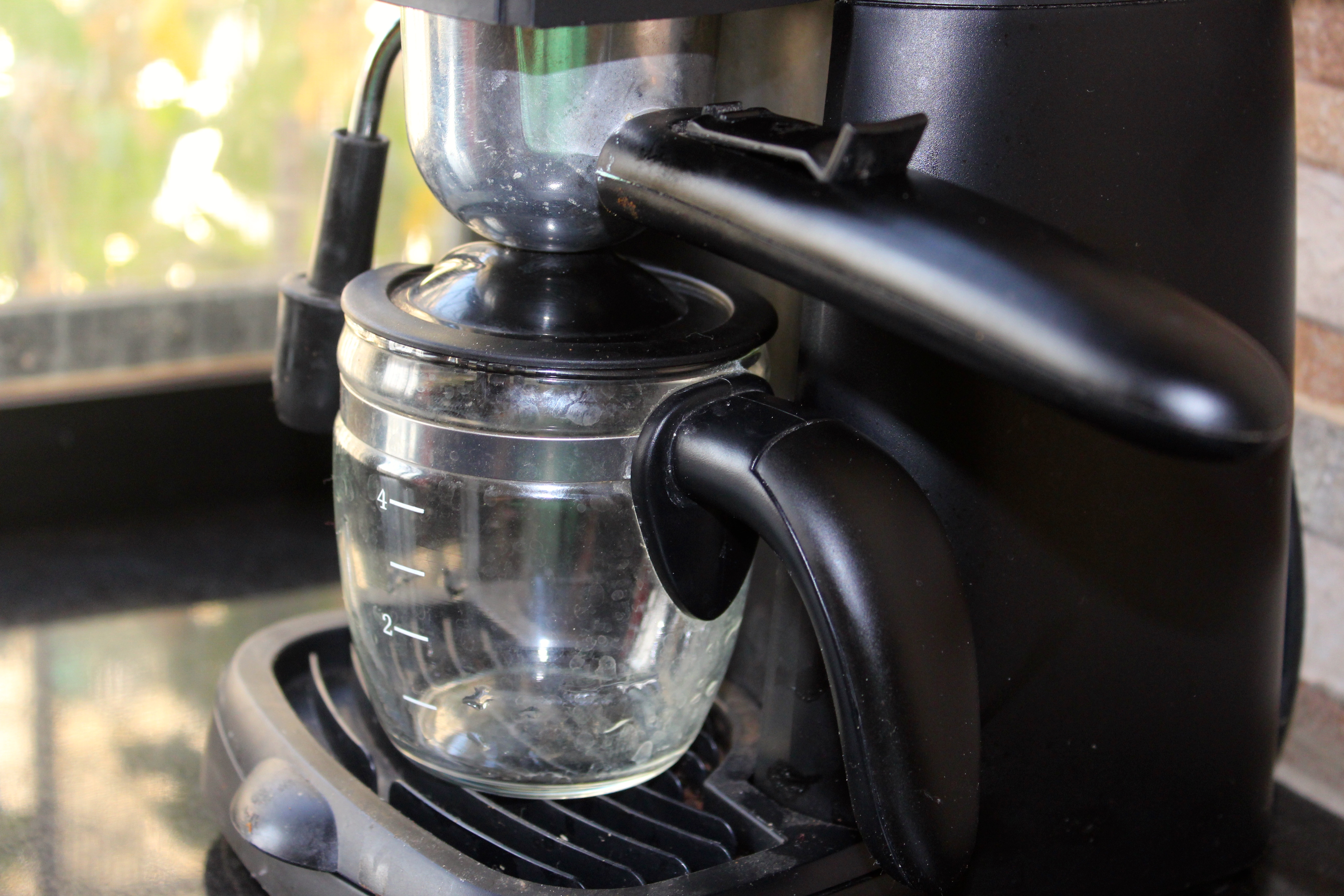
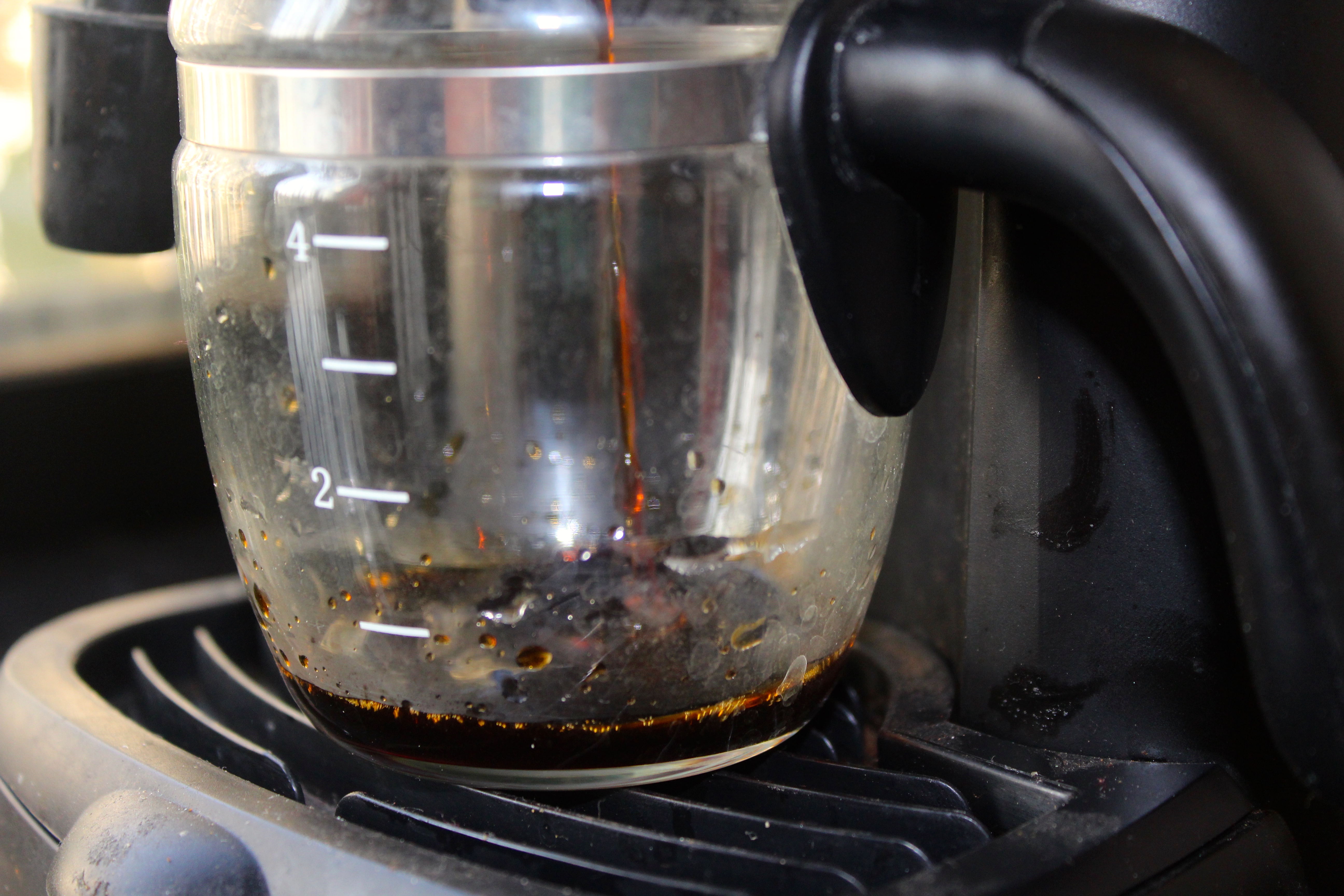
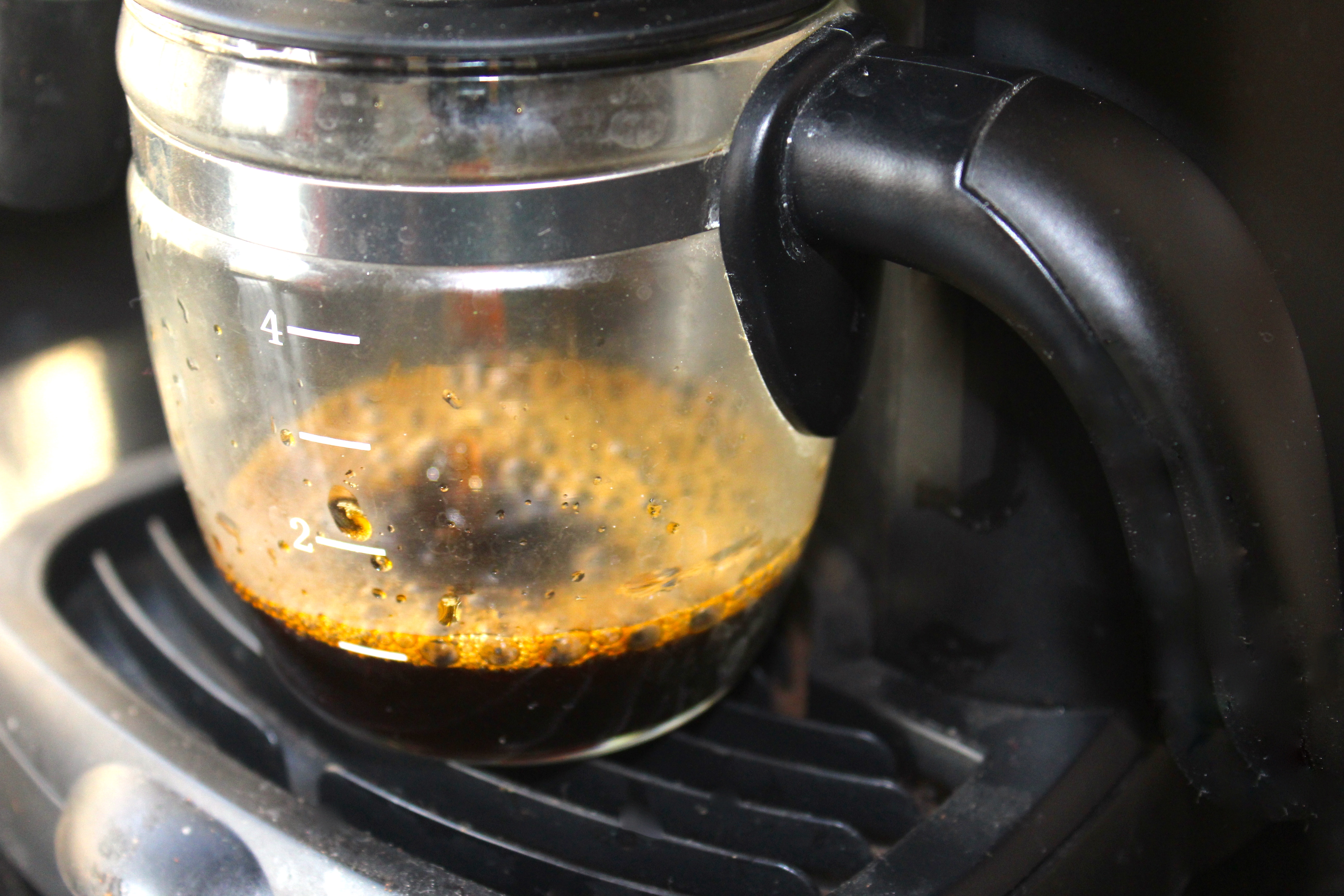


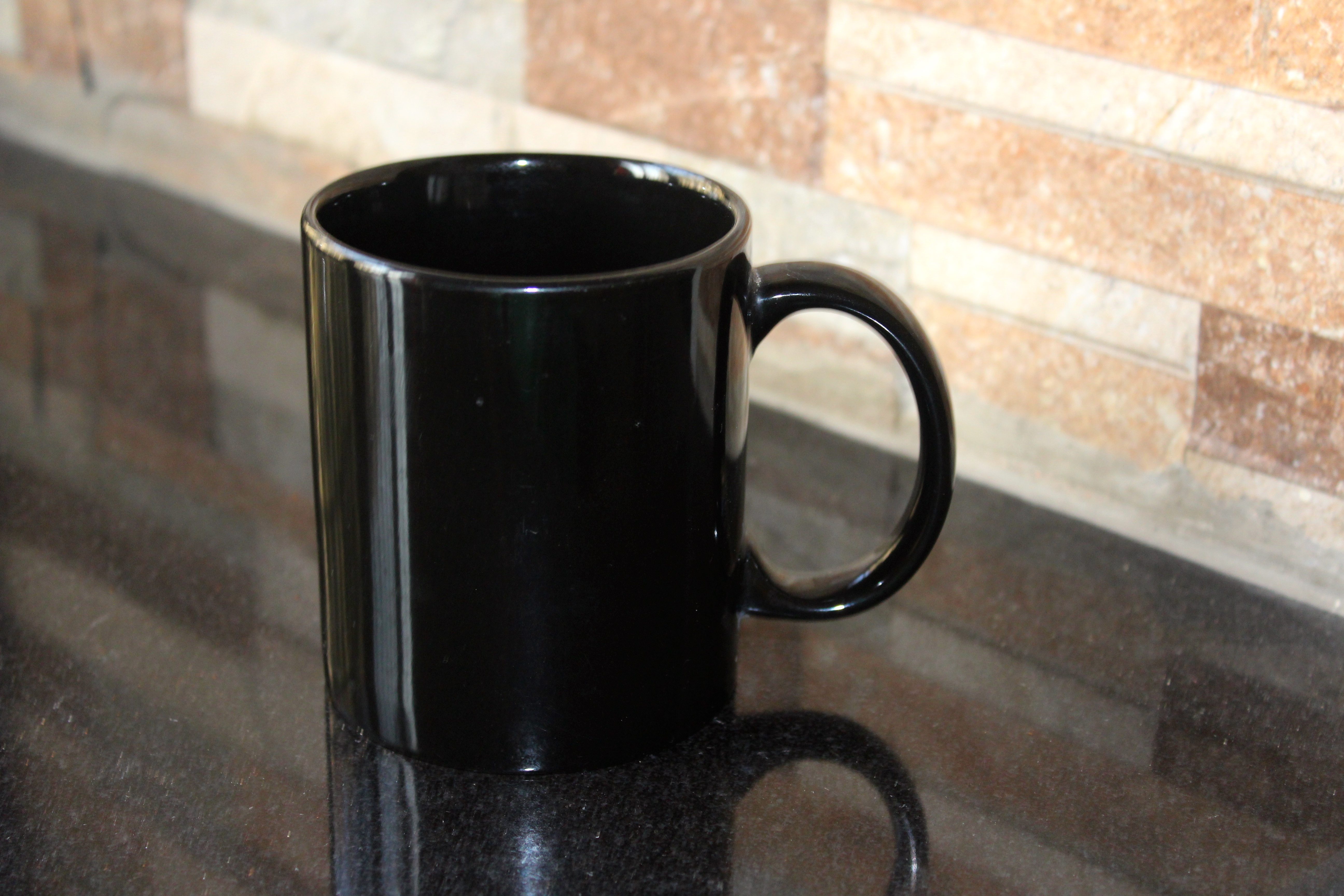
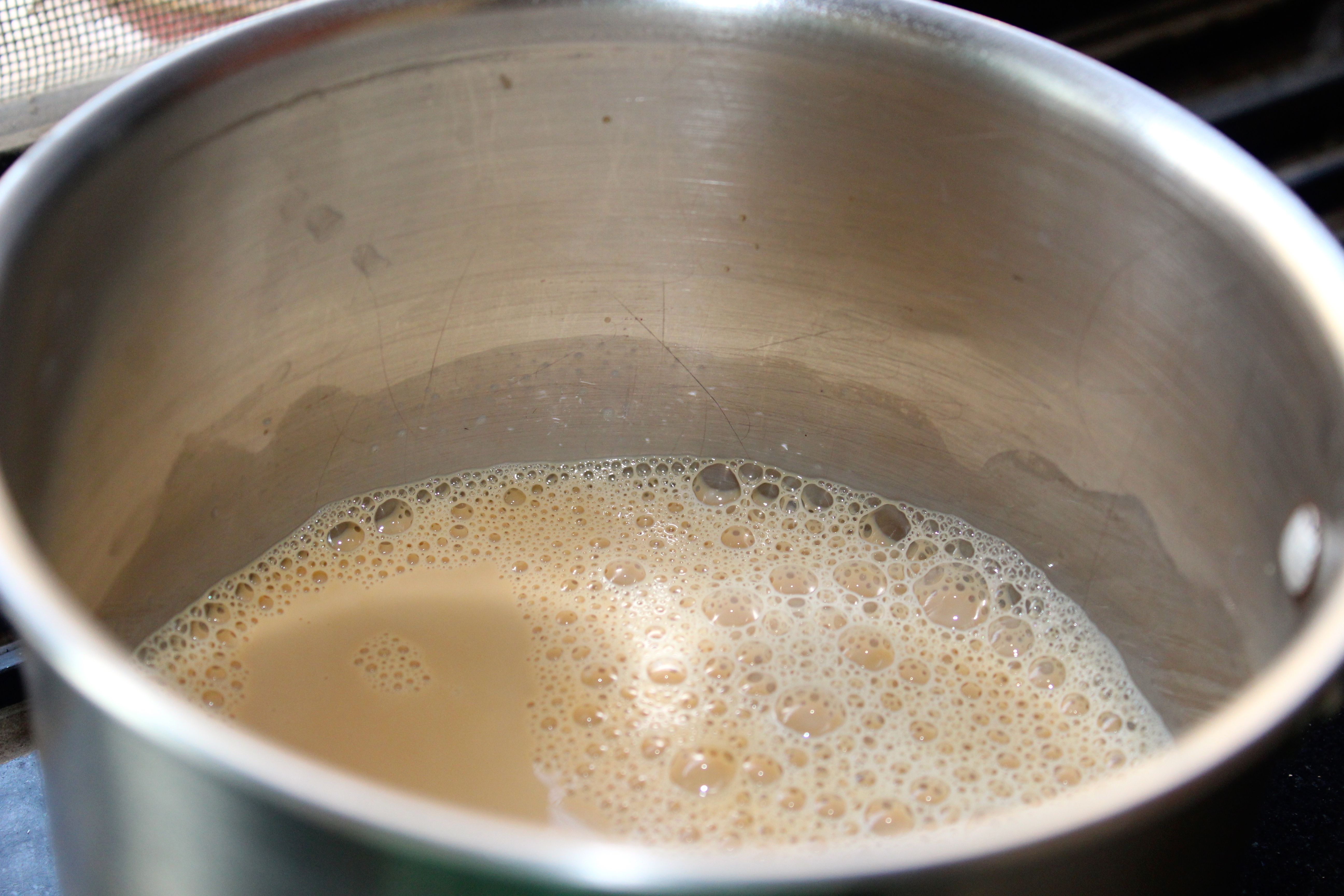


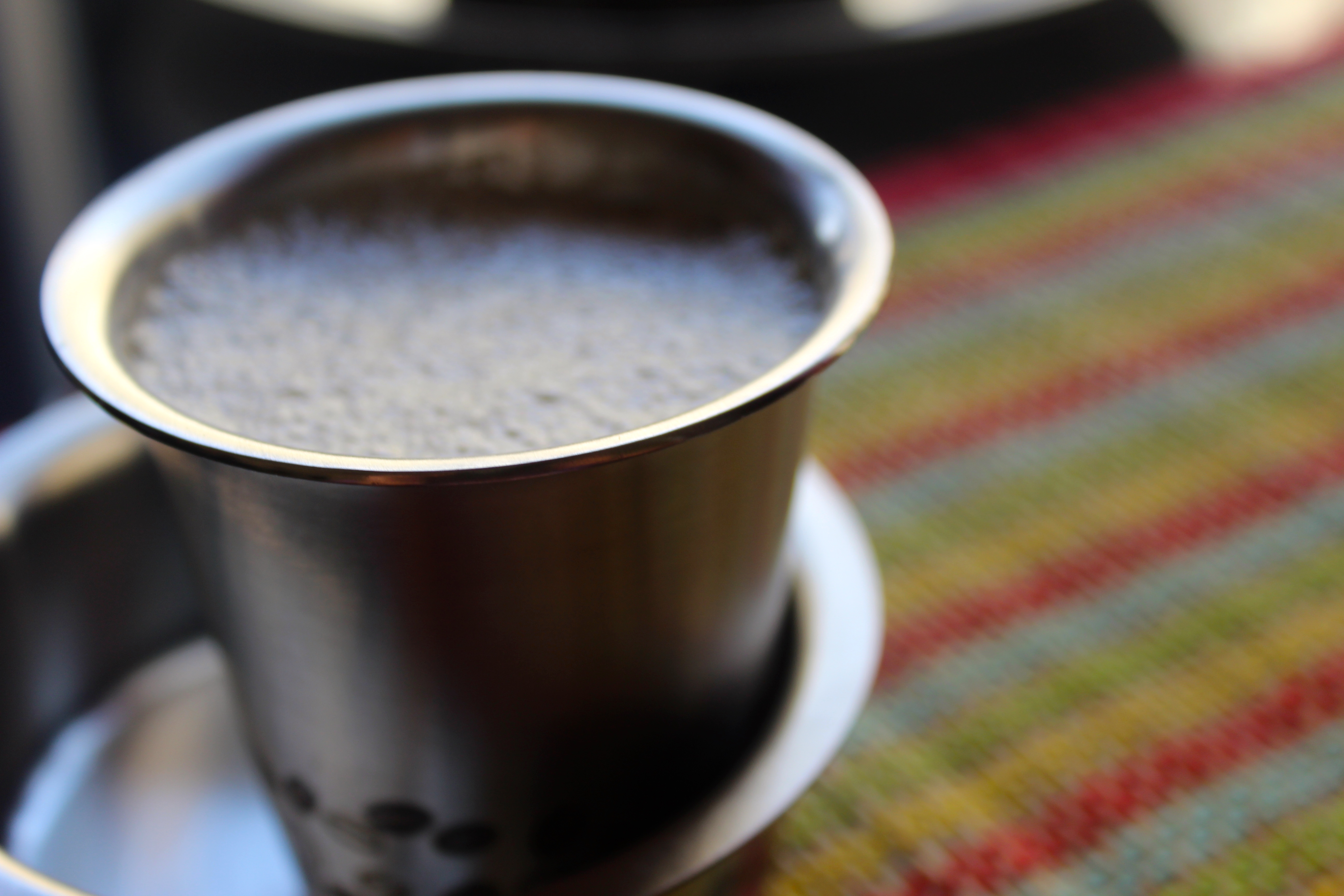
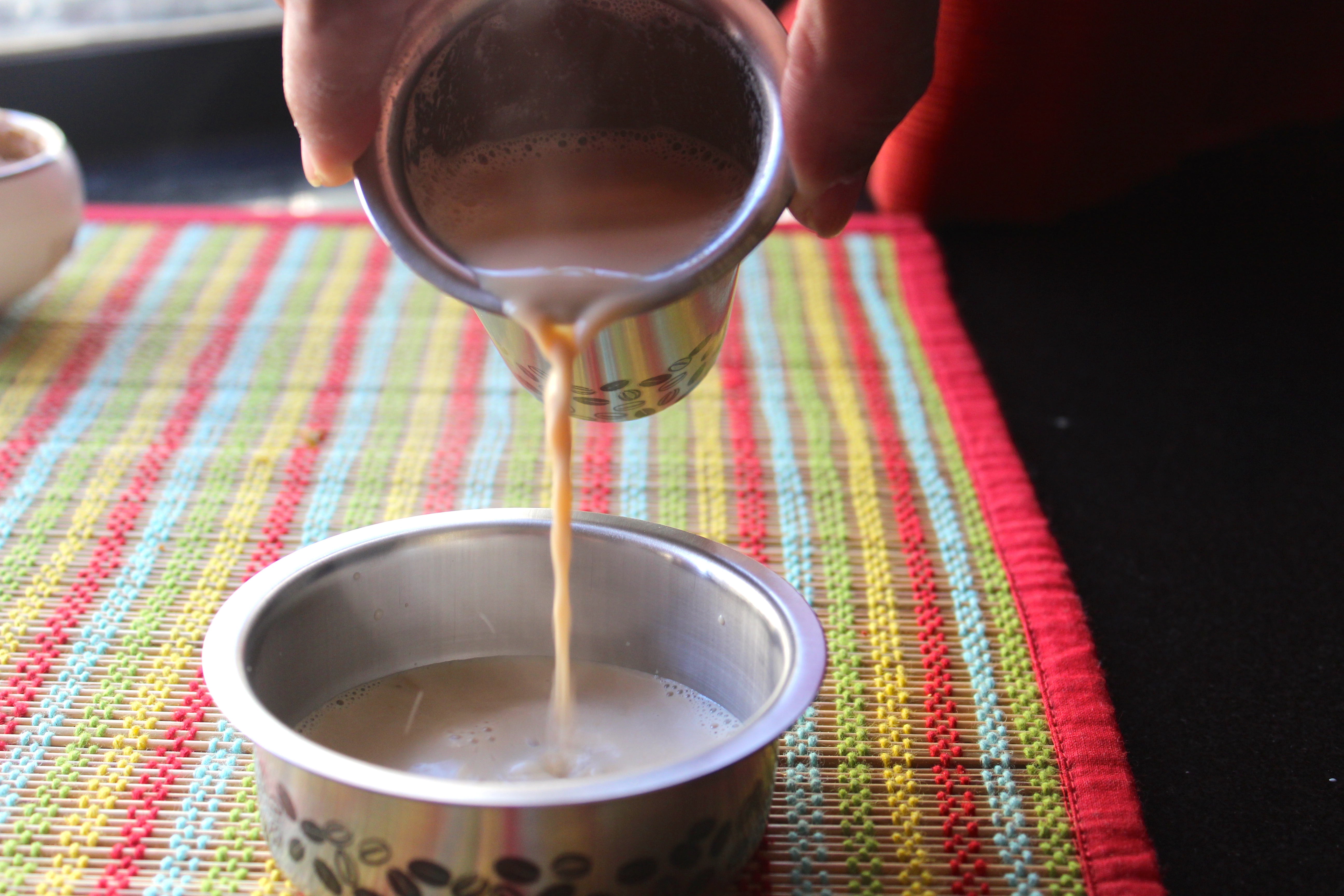

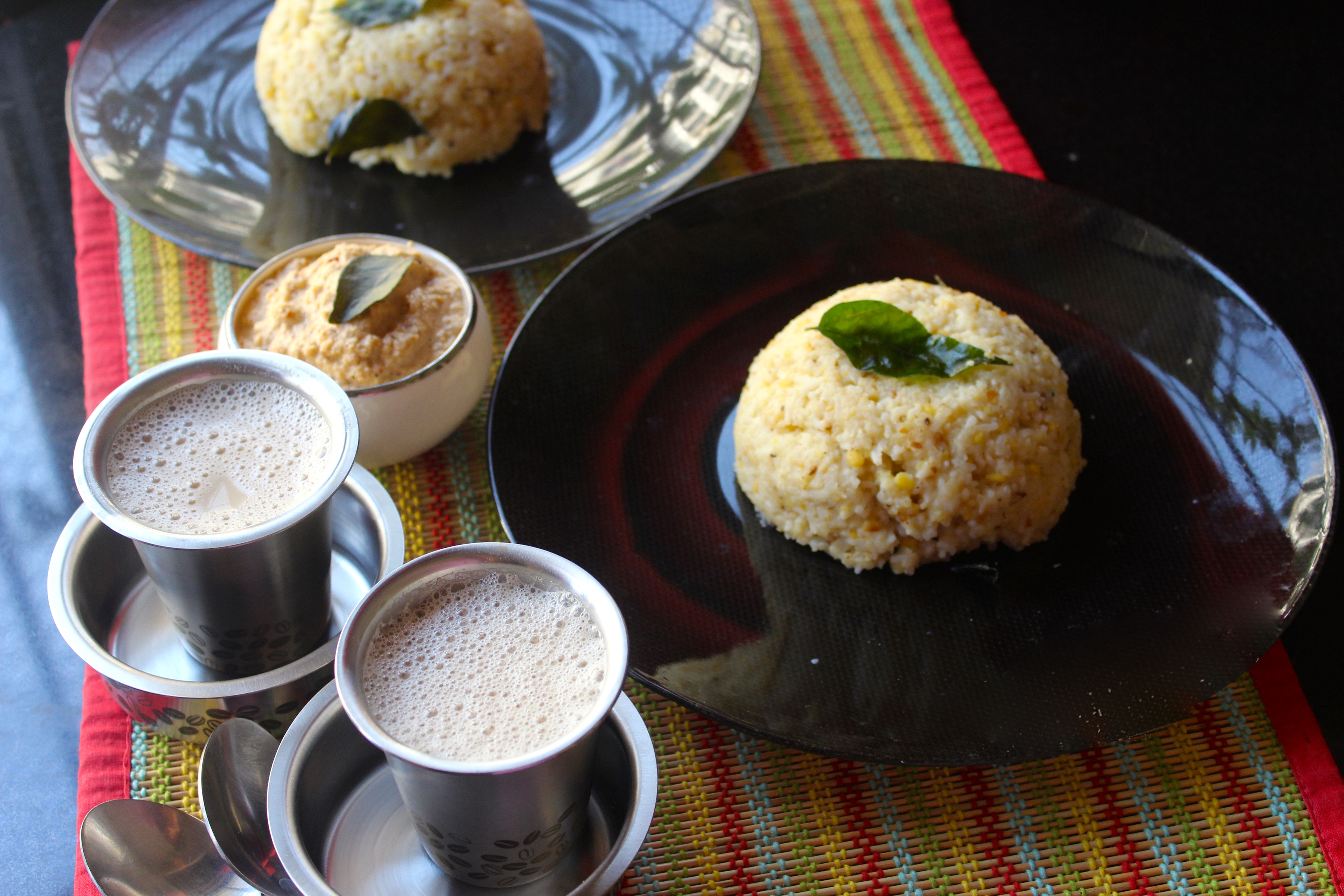
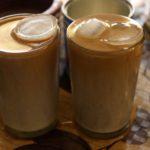
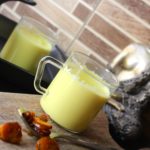
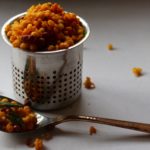
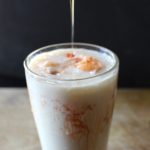
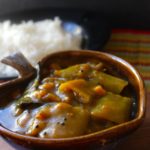
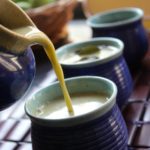
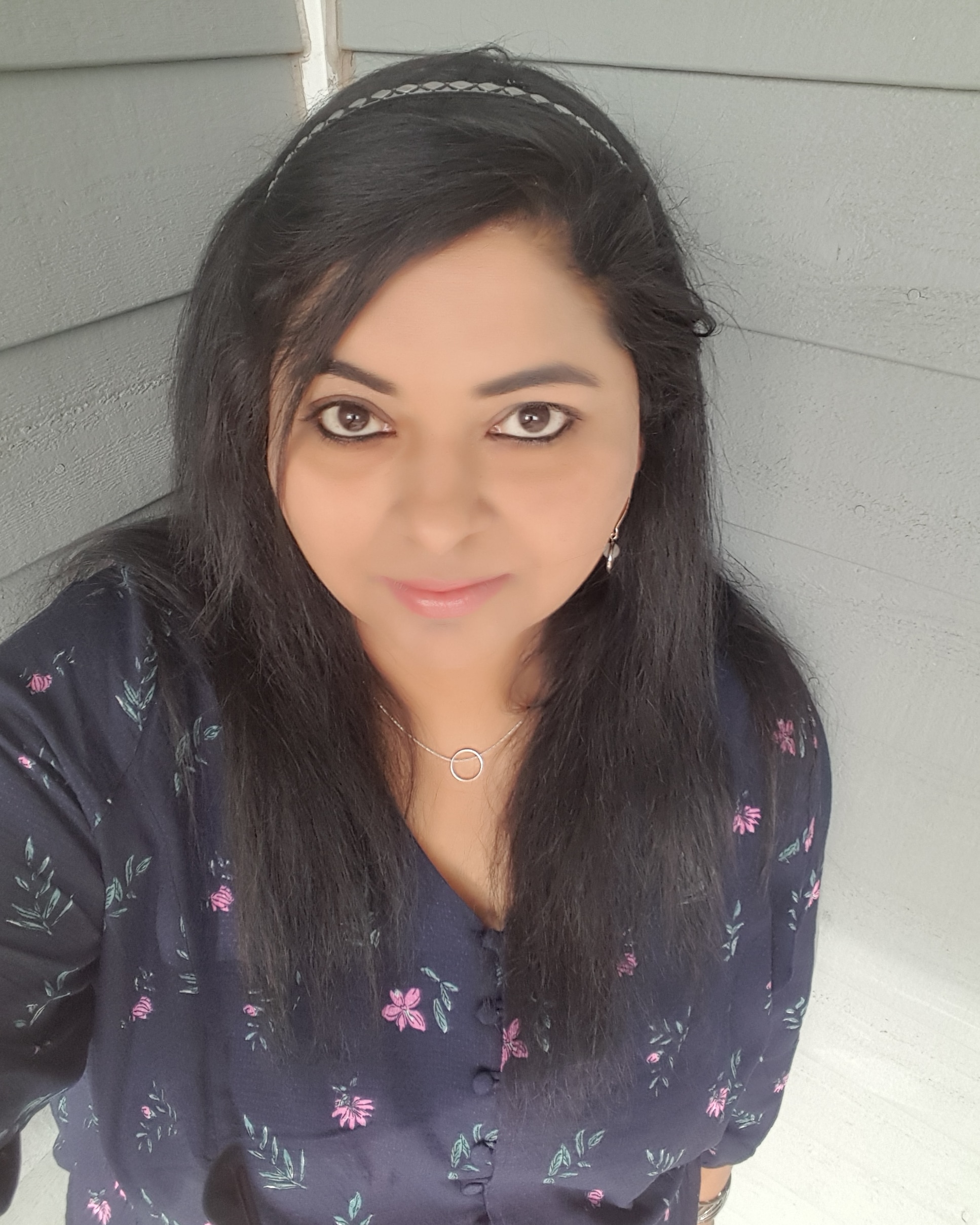


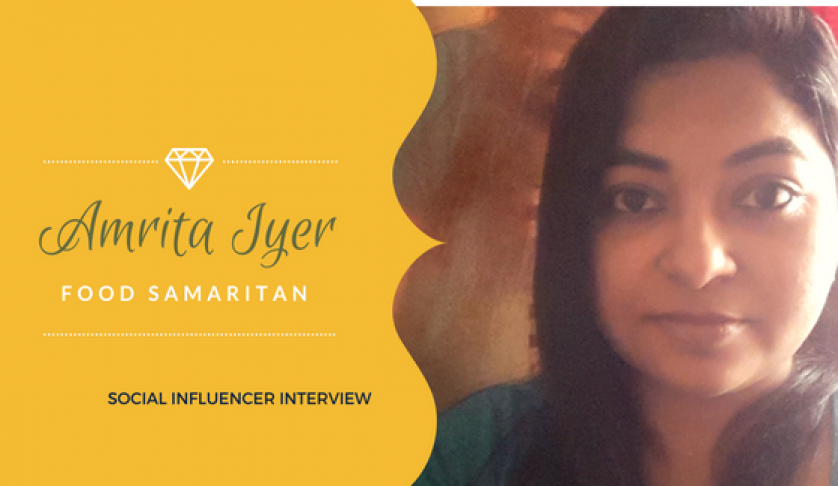





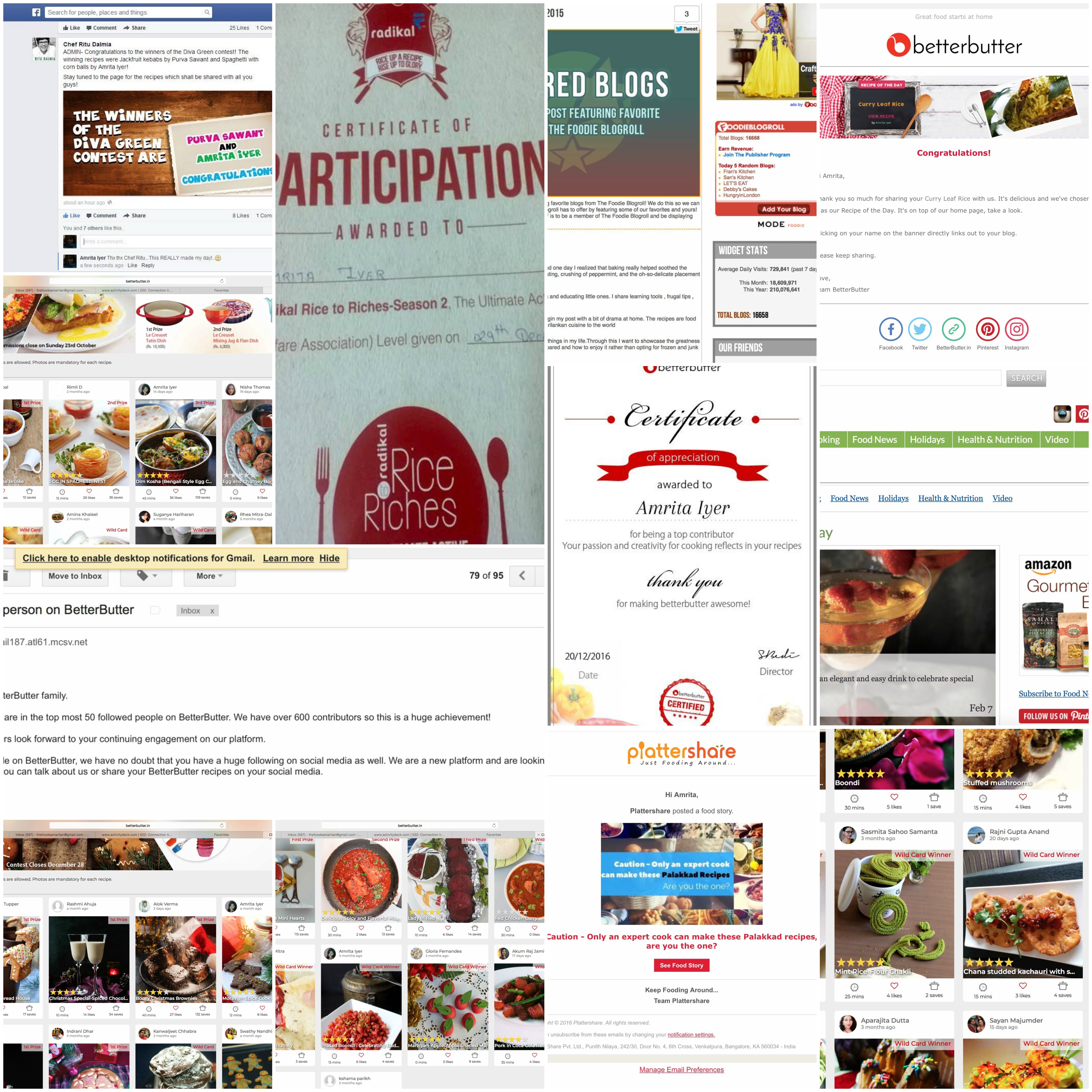

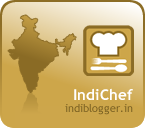

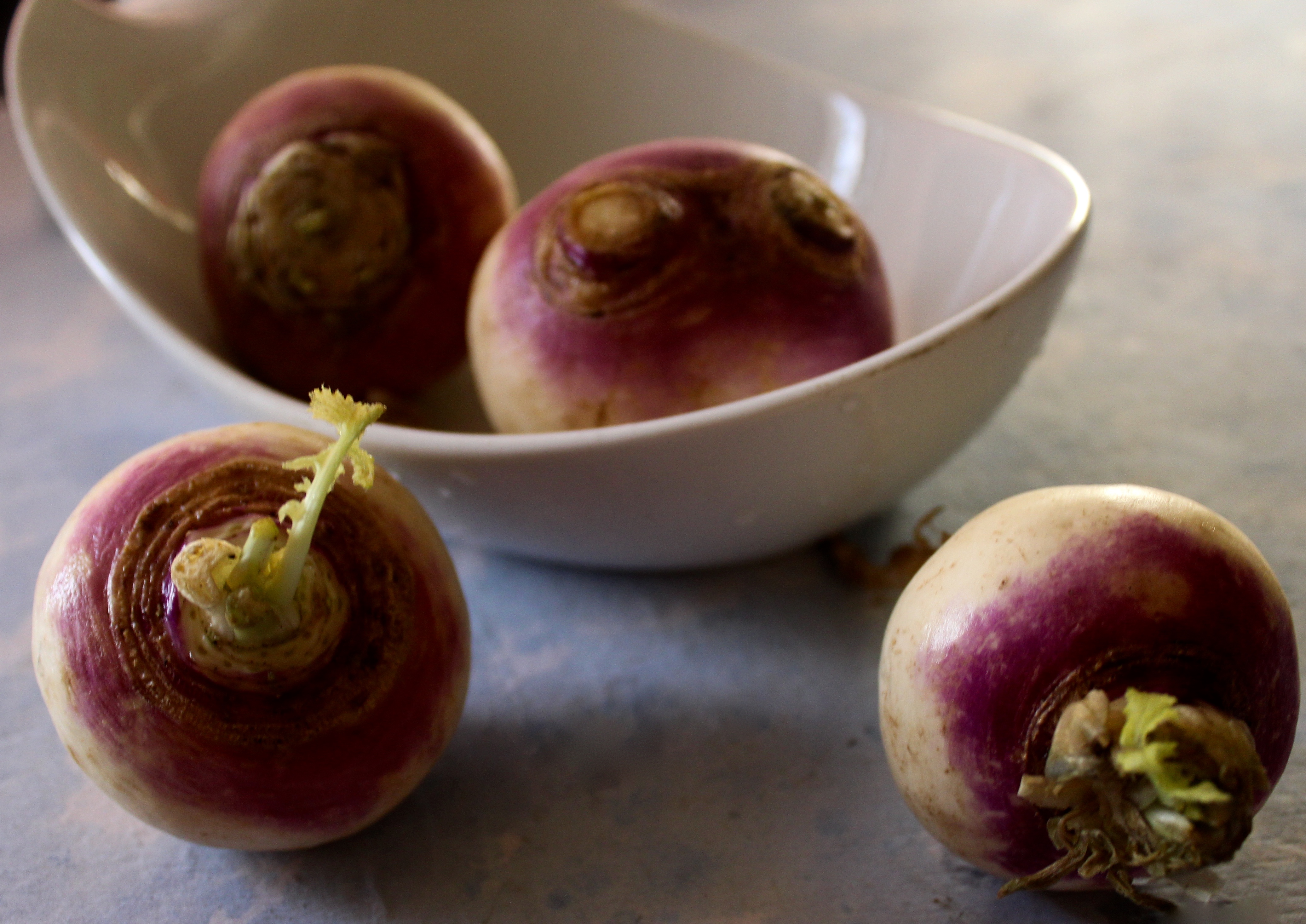



Such a saviour you are. I was looking for alternatives to make filter coffee without the traditional equipment and found your blog. Thanks!